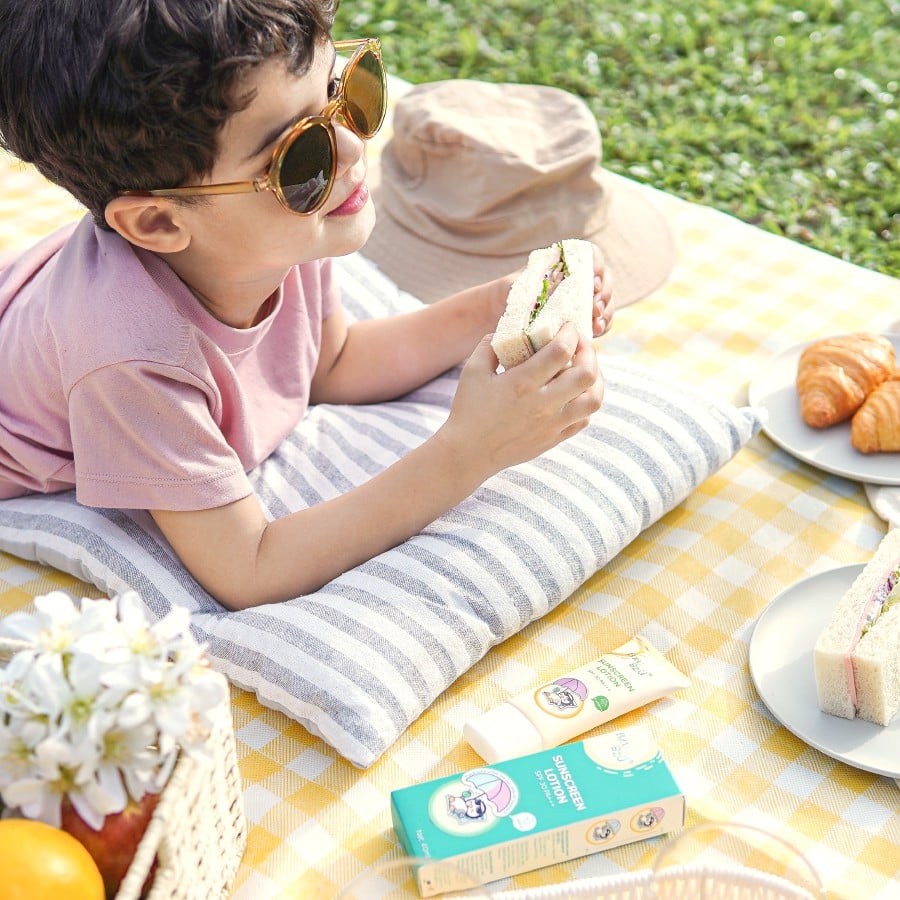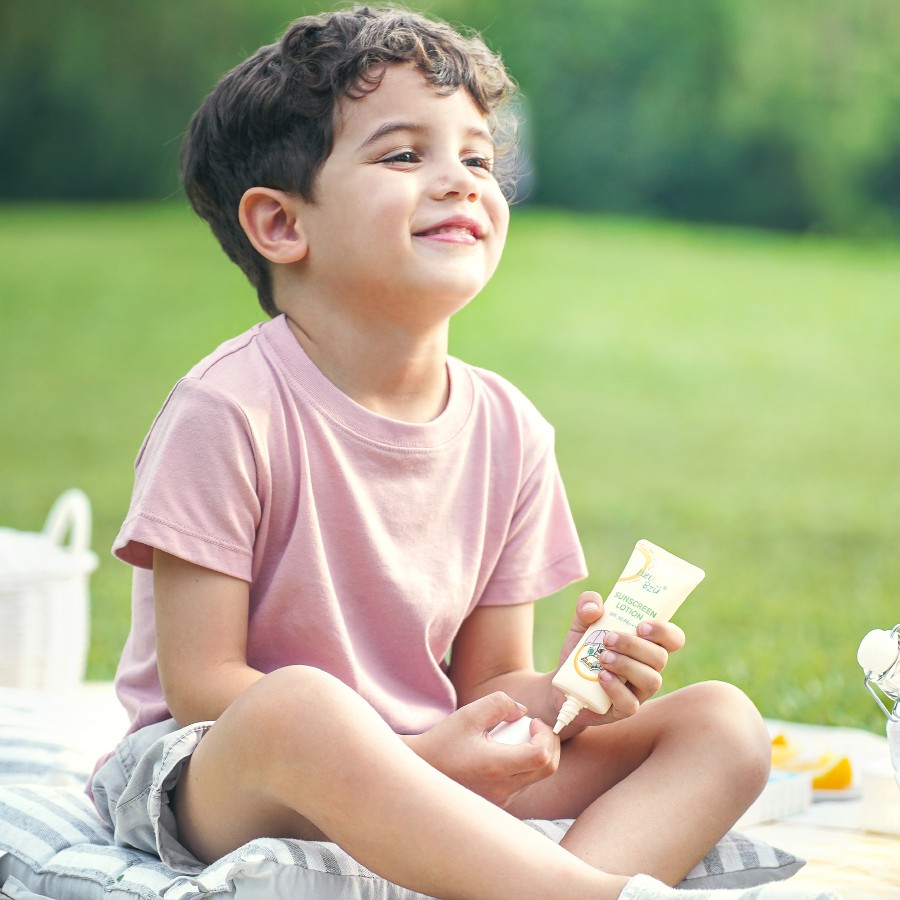WHEN I was growing up, sunscreen products were unheard of. Children played outdoors even during the hottest time of the day. No one ever cautioned us about the dangers of doing so.
But now, research clearly indicates the risk of prolonged exposure to UVA and UVB rays including sunburn, skin damage, premature ageing and the risk of skin cancer.
Most parents today are very conscious about using sun protection products on their children.
Children have very delicate skin compared to adults, rendering them more susceptible to UV radiation from the sun, explains Raphael Jiang, CEO of family care brand Bzu Bzu.
Sunburn in children can cause blistering, redness, long-term skin damage, and skin cancer later in life from prolonged exposure to the sun, he explains.
"By using sunscreen, parents can provide a protective shield against harmful UVA and UVB rays, allowing children to indulge in outdoor activities without experiencing any pain or discomfort in delicate skin areas such as the face, ears and neck."
In fact, application of sunscreen should be a routine and daily practice in places like Malaysia where sun exposure is all year round. It's especially important to be protected during the peak hours of 11am - 4pm when the sun's rays can be very harsh.

Unfortunately, most Malaysians don't have the habit of applying sunscreen on a daily basis, even when they visit recreational places like parks or beaches.
Jiang says when it comes to choosing a sunscreen product for a child, it pays to be cautious and read labels.
"Look for a sunscreen that has SPF 30 PA+++, with no paraben, formaldehyde, and alcohol and opt for products specifically designed for children's sensitive skin," he advises.
Sunscreen products made for adults are not suitable for children and may result in skin irritation due to some of the ingredients they contain.
Always opt for a broad-spectrum sunscreen which has safe ingredients, adds Jiang.
It's also wise to use other means of sun protection such as protective clothing and sun hats if your child is going to be exposed to the sun for a prolonged period.
Making sun protection a routine part of outdoor activities and educating children about the importance of sun safety will help instil healthy habits from a young age.

USE IT RIGHT
*Sunscreen should be reapplied every two hours or more frequently if the child is swimming or sweating.
*Follow the product instructions and ensure thorough coverage, paying attention to commonly overlooked areas such as the ears, neck, and the tops of feet.
*Look for products with natural ingredients that are not loaded with chemicals when dealing with delicate skin.
*Lightweight formulas are best for children as they feel comfortable and absorb easily.
*Opt for sunscreen products in small bottles that can be easily carried around so re-application is easy.
*Apply in a gentle upward motion without rubbing firmly.
*More is not necessarily better. A thick layer doesn't mean additional protection. As long as skin is adequately covered with the product, you're good to go.

Various sunscreens for your skin are now availbale withZalora promo code.




